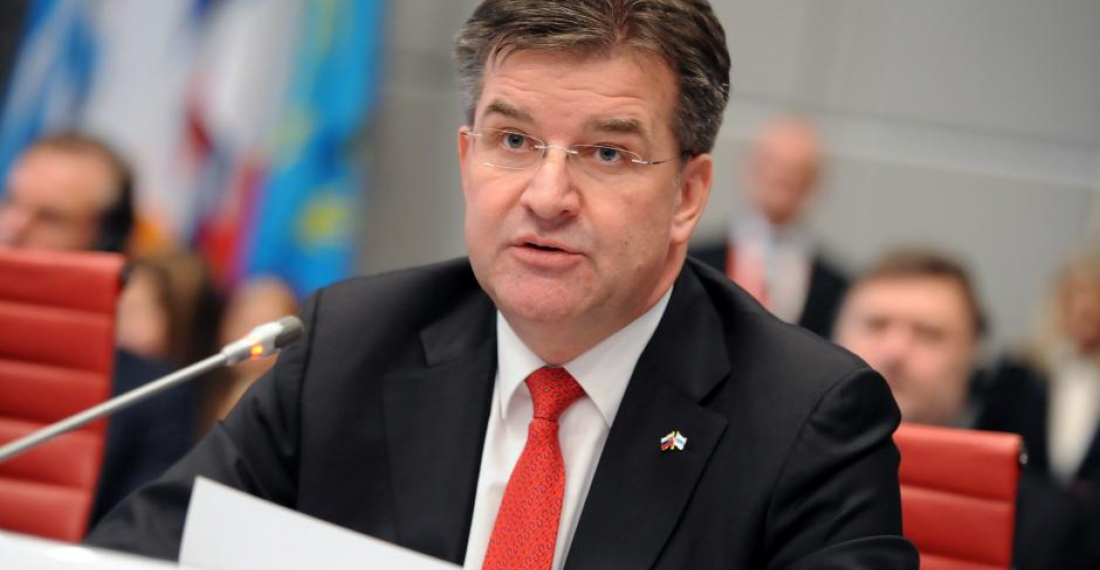Addressing the unresolved conflicts in the OSCE area will be one of the priorities of the Slovak Chairmanship of the Organisation for Security and Co-operation in Europe (OSCE) in 2019. Slovakia took over the annual chairmanship of the organisation last week, and on Thursday (10 January), its Foreign Minister, Miroslav Lajcak was in Vienna where addressed the Permanent Council of representatives of the 57 member states of the organisation
Elaborating on the Chairmanship's priority of conflict prevention and resolution, Lajčák drew attention to the human suffering caused by protracted conflicts, adding that special attention will be given to the situation in and around Ukraine. Reminding the Permanent Council of the need for ongoing support to the OSCE Special Monitoring Mission and announcing his visit to Ukraine next week, the OSCE Chairperson-in-Office said he will focus on opportunities for dialogue. "If there is any way to immediately alleviate the situation for people on the ground, we must take it," he said.
Lajčâk also acknowledged positive momentum, when it comes to the Transdniestrian Settlement Process, the recent intensification of dialogue and the decrease in ceasefire violations and casualties in the Nagorno-Karabakh conflict, and the resumption of the Incident Prevention and Response Mechanism meetings in Ergneti.
Introducing the Chairmanship's second priority - a safer future - Lajčák said that if the OSCE is to make a difference in the lives of people, it cannot focus only on the challenges of today.
"We are still in the dark about the role communications technologies, artificial intelligence or energy innovations will play in our security landscape, years from now. But one thing is certain: we need to start thinking about it - and talking about it - more."
As custodians of the present and future, he called for young people to have a greater say, adding that they are coming up with new ways to prevent violent extremism, counter climate change and spur sustainable development.
Turning to the Chairmanship's third priority - effective multilateralism - the OSCE Chairperson-in-Office pointed out that today's security challenges cannot be addressed by one country alone.
The major challenges facing the OSCE region and beyond demand more co-operation and more dialogue than ever before, said Miroslav Lajčák, Lajčák pointed out that all the tools needed to overcome current security challenges already exist. "In fact, many lie right here, at the OSCE," he added.
source: commonspace.eu
photo: Slovak Foreign Minister Mirsolav Lajcak addressing the OSCE Permanent Council in Vienna on 10 January 2019 (picture courtesy of the OSCE)







